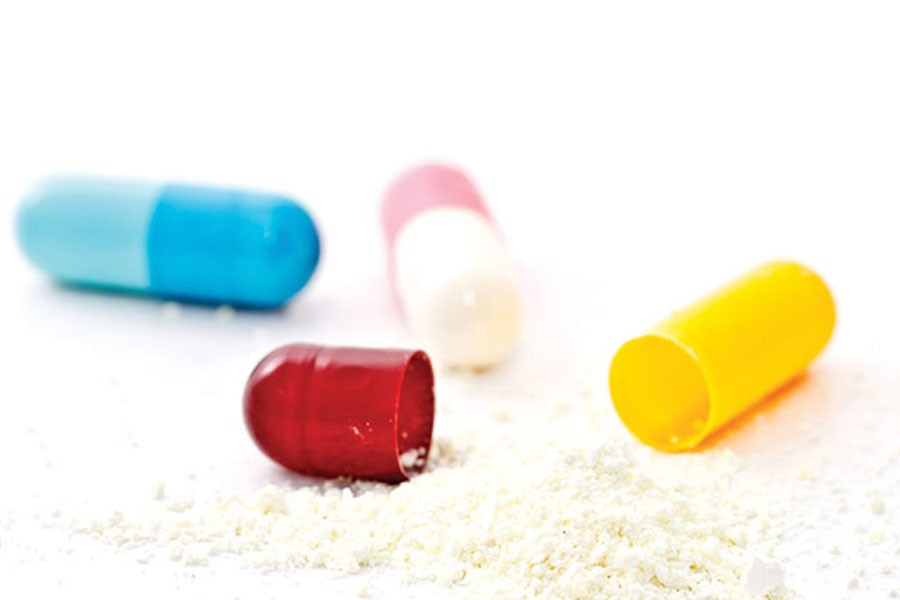Bangladesh will conduct a study to assess problems and prospects of producing active pharmaceutical ingredients (APIs) locally, officials have said.
Sources said roughly 95 per cent of the Tk 50-billion worth of raw materials are imported, mainly from China, Korea and India.
Local producers supply only 5.0 per cent, they added. Domestic APIs are two to three times cheaper than those imported from abroad.
To cut reliance on large-scale import of raw materials, the country needs to produce APIs on its own sufficiently, they added.
"For lack of skills and technical knowhow, the industry cannot function up to its potential to produce APIs locally."
Commerce ministry joint secretary and WTO cell director Md Hafizur Rahman said, "We'll conduct a study on API. Next, we'll train up pharmaceutical entrepreneurs."
"We'll also send entrepreneurs and stakeholders to API producing countries like China to see how they produce essential pharmaceutical raw ingredients," he told the FE.
Efforts are afoot to make Bangladesh a sufficient API-producing country to reduce dependency on large-scale imports, a high official of the commerce ministry said.
The World Trade Organisation (WTO) committee on intellectual property rights extended a waiver on pharmaceuticals until 2032.
"Conditions will be imposed gradually and flexibly from 2021. It is high time to act promptly utilising the opportunity to the full," the official cited.
When asked, a senior industries ministry official said, "Commerce ministry is discussing the issue of establishing API parks with stakeholders concerned."
The government has taken the issue seriously and is currently working on it, he told the FE.
A policy guideline has been prepared in this regard, a competent source said.
He mentioned that lead time and cost would reduce sharply if "we become self-sufficient in API production locally instead of going for imports".
While inaugurating the 23rd Dhaka International Trade Fair, Prime Minister Sheikh Hasina declared pharmaceutical products, including raw materials, as the 'Products of the Year 2018'.
Presently, the a project is being implemented to set up an API Industrial Park in Munshiganj to produce active pharmaceutical ingredients.
Two parks are also being built in Bagerhat and Khulna under private arrangements.
Some local entrepreneurs are producing APIs on a small scale and they are making third-generation medicines using the APIs.
Potato starch, corn starch and molasses are in abundance in Bangladesh and these are used to produce biological products.
The pharmaceutical industry here meets 97 per cent of the local demand for medicines.
It also exports to more than 120 countries, including the US, the UK, the EU and Australia.
The country shipped medicines worth $103.46 million in the fiscal year (FY) 2017-18, up from $89.17 million in FY '17, according to the Export Promotion Bureau figures.
Export earnings from the sector were $70 million in 2015 while the earnings of India and China were $15 billion and $124 billion respectively.
It is possible to raise the export volume of pharmaceutical items to $1.0 billion within two to three years, according to data available with the Prime Minister's Office.
An expert said the large-scale import of pharmaceutical raw materials is a burden on the country and it is also a national security concern.
The government should take effective measures to produce APIs locally, he observed.
The National Board of Revenue has exempted import of raw materials for API production from VAT payment until December 2025.


